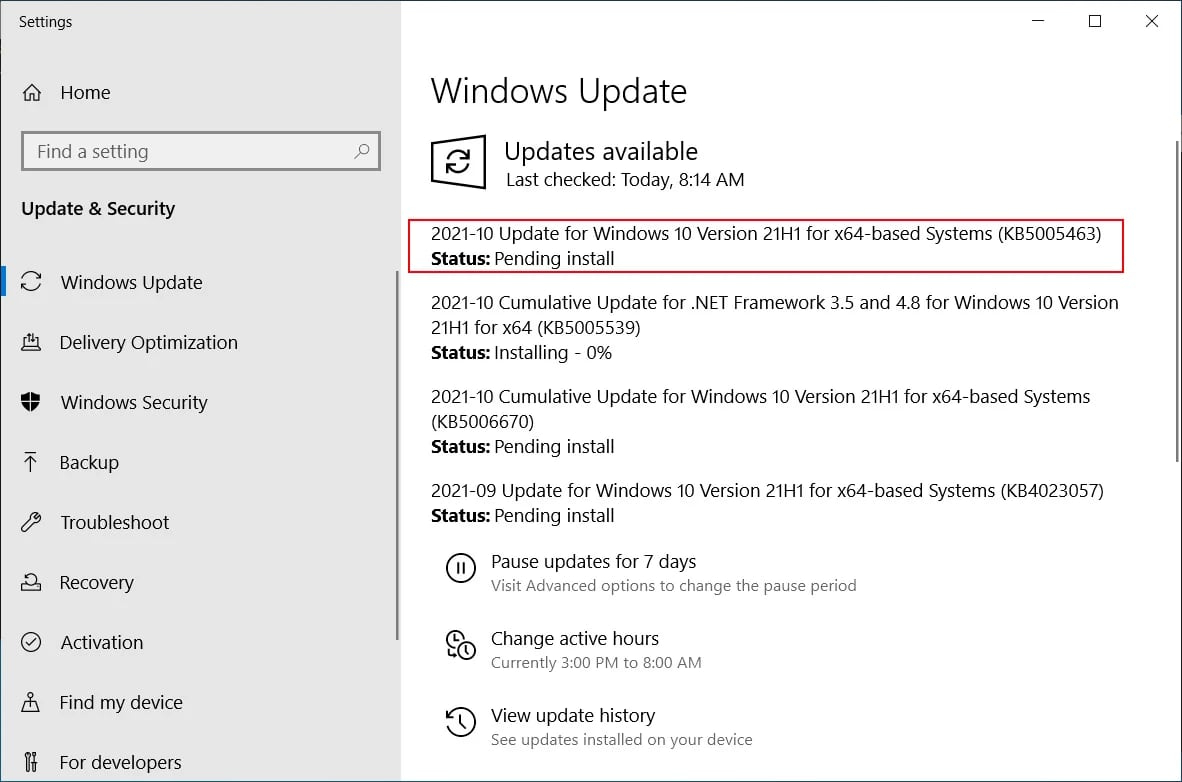Windows 10 Update Force Installs Health Check for Windows 11
You're getting the PC Health Check tool whether you want it or not.
When Microsoft launched Windows 10 over five years ago, it took drastic steps to ensure that users swiftly adopted the new operating system (much to the chagrin of Windows 7 users, in particular). According to Bleeping Computer Microsoft seem to be taking the same approach with Windows 11 with its latest update, KB5005463, that was pushed out to Windows 10 users via Windows Update last week.
KB5005463 includes the PC Health Check tool, which determines if a Windows 10 system meets the minimum system requirements to install Windows 11. Previously, the PC Health Check tool was only available as a separate download from Microsoft's Windows 11 landing page, which attests to its "optional" status for users.
By rolling it into KB5005463, Microsoft is essentially saving Windows 10 users a bit of time if they are interested in upgrading to Windows 11. For its part, Microsoft says that users can simply uninstall the update if they are bothered by its presence. However, it's not that simple, according to BleepingComputer.

Users who have tried to uninstall the app manually indicated that the PC Health Check tool reinstalls itself the next time the PC checks for updates. Attempting to uninstall the KB5005463 presents an incorrect error message: "The update KB5005463 is not installed on this computer."
If you're adamant against having the PC Health Check tool installed on your system, BleepingComputer has instructions on editing your registry to prevent it from repeatedly reinstalling. But it should be noted the app itself is relatively harmless. Its primary task is to check for Windows 11 compatibility, and it does not run automatically at startup. In other words, it's primarily out of mind and out of sight.
Microsoft rolled out a limited release of Windows 11 on October 5th, and most eligible Windows 10 PCs should have the update by the first half of 2022. However, for those who plan to stick with Windows 10 for the long haul, there's no rush to upgrade to Windows 11 – Microsoft says it will continue supporting the legacy operating system through late 2025.
Get Tom's Hardware's best news and in-depth reviews, straight to your inbox.

Brandon Hill is a senior editor at Tom's Hardware. He has written about PC and Mac tech since the late 1990s with bylines at AnandTech, DailyTech, and Hot Hardware. When he is not consuming copious amounts of tech news, he can be found enjoying the NC mountains or the beach with his wife and two sons.
-
-Fran- Please do update us if Microsoft realizes how much of a D move this is.Reply
I had a similar situation with Google and Drive. They forcefully installed it without me accepting anything or even being asked about it. Their current "Backup and Sync" is pretty much useless unless I install the new software, but it's not even half as functional!
These sort of things make me really salty.
Regards. -
ezst036 Classic bloatware. Its relatively small compared to some other instances, but still, its things like this that are what make people re-consider switching to Macs or installing Linux.Reply
Nobody enjoys having things done to them against their will, and when you make people feel bad they always remember how you made them feel. -
coloradoblah Replyezst036 said:Classic bloatware. Its relatively small compared to some other instances, but still, its things like this that are what make people re-consider switching to Macs or installing Linux.
Nobody enjoys having things done to them against their will, and when you make people feel bad they always remember how you made them feel.
Stockholm Syndrome? -
durahl Reply
So a kinda mandatory utility doing nothing but informing you of the viability of upgrading to the next generation of the OS you're currently using cannot be uninstalled and you're already freaking out with migrating over to an either even more walled down OS with even less User decisions to be made or an OS either hammering you with Kernel of the Month or being watered down enough for usability you might as well have stayed with the current OS you loathe for helping you plan ahead.ezst036 said:Classic bloatware. Its relatively small compared to some other instances, but still, its things like this that are what make people re-consider switching to Macs or installing Linux.
Nobody enjoys having things done to them against their will, and when you make people feel bad they always remember how you made them feel.
Not everything revolves around the 2-3 special flowers like you, sometimes it's about the plethora of ppl's parents and grandparents that need such a Checker to see what their options are. -
-Fran- Reply
Do you turn away sales people at the door or do you invite them into your house and listen to all their sales pitch? Maybe you have a sign outside that says "No solicitors. Thanks"?durahl said:So a kinda mandatory utility doing nothing but informing you of the viability of upgrading to the next generation of the OS you're currently using cannot be uninstalled and you're already freaking out with migrating over to an either even more walled down OS with even less User decisions to be made or an OS either hammering you with Kernel of the Month or being watered down enough for usability you might as well have stayed with the current OS you loathe for helping you plan ahead.
Not everything revolves around the 2-3 special flowers like you, sometimes it's about the plethora of ppl's parents and grandparents that need such a Checker to see what their options are.
Regards. -
Ancient_CTOS_User Easy enough to uninstall. I do wonder if a future 'update' will force install again.Reply -
ezst036 Replydurahl said:......... and you're already freaking out with migrating over to .....
Meh. It's not like there haven't been months of digital wailing over people's computers being canceled in the TPM 2.0 debacle, so, welcome to being born today. For the rest of us this is not the first issue anybody has had anywhere in the move from Windows 10 ---> Windows 11. Say all you want. This is an insult from MS.
That means that for the rest of us, 1 insult plus 1 insult equals 2. I specifically said this was relatively small. TPM 2.0 will probably always be the elephant in the room. But realistically speaking insults pile up. Time to recognize that fact. -
drtweak ReplyYuka said:Please do update us if Microsoft realizes how much of a D move this is.
I had a similar situation with Google and Drive. They forcefully installed it without me accepting anything or even being asked about it. Their current "Backup and Sync" is pretty much useless unless I install the new software, but it's not even half as functional!
These sort of things make me really salty.
Regards.
+1 on the google drive. I don't like it. its all or nothing on the files. I have a work folder and just synced that one folder. Now i had to create a free gmail for work, share my work folder to that gmail so that i can have the files on both places.